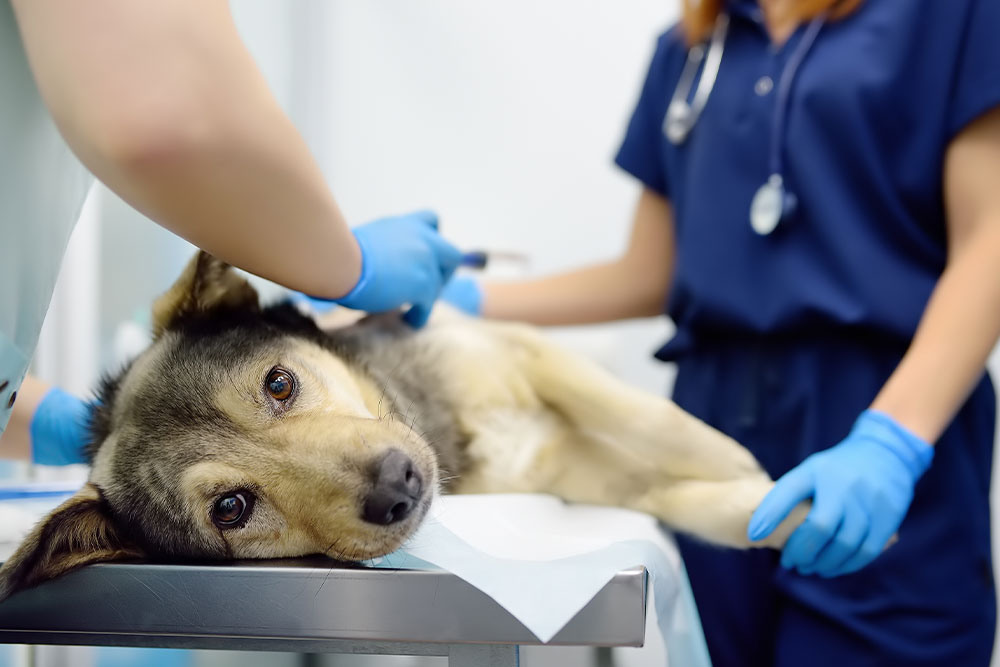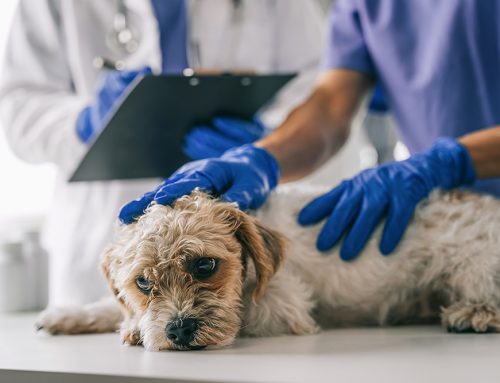Early Detection of Cancer in Pets: A Guide for Lakewood Ranch Pet Owners
Maintaining the health of our pets is not just a responsibility—it’s a necessity. Early detection of diseases, especially cancer, plays a pivotal role in not only extending the lives of our pets but also improving their quality of life. At Wellness Animal Hospital in Lakewood Ranch, Florida, we prioritize your pet’s health with a commitment to providing trusted veterinary care.
Understanding Cancer in Pets
Cancer, in simple terms, is the uncontrolled growth of cells that can affect any part of the body. This disease can appear in various forms, such as lymphoma, mast cell tumors, and osteosarcoma. Pets, like humans, can develop cancer due to a combination of genetic predispositions, environmental factors, and age. Some cancers are influenced by exposure to carcinogens, while others are more common due to breed predispositions or inherited genetic factors. Understanding the types of cancers pets can develop, along with risk factors, is essential for early detection and proactive monitoring.
Common Types of Cancer in Pets
- Lymphoma: Often affects lymph nodes and can spread rapidly. It’s particularly common in dogs, especially in breeds like Golden Retrievers and Boxers.
- Mast Cell Tumors: Typically found in the skin, these tumors can vary in severity. They are common in breeds like Boxers, Bulldogs, and Boston Terriers.
- Osteosarcoma: A type of bone cancer that is aggressive and often seen in large-breed dogs such as Rottweilers, Great Danes, and Greyhounds.
- Hemangiosarcoma: Often affects blood vessels and the spleen. It’s frequently found in German Shepherds, Golden Retrievers, and Labrador Retrievers.
- Melanoma: Typically affects the skin, mouth, and nail beds. While it can appear in various breeds, it’s more common in older dogs and breeds prone to skin issues.
- Squamous Cell Carcinoma: Common in cats, particularly on their ears and nose due to sun exposure. It’s often found in lighter-colored or hairless cats and dogs.
Each type of cancer has distinct signs, growth rates, and treatment options, making it crucial to know your pet’s risks based on their breed, lifestyle, and health history.
Recognizing Symptoms of Cancer in Pets
Early detection can significantly improve the management and outcomes of cancer in pets. Here are some common signs to watch for:
- Lumps and bumps: Not all are cancerous, but any new or changing lump should be evaluated. Regularly checking your pet for unusual growths and documenting changes can help catch issues early.
- Unexplained weight loss: Sudden weight loss can signal that your pet’s body isn’t processing food correctly or is using too much energy due to an internal issue.
- Persistent sores or wounds: Sores that do not heal could be a sign of infection or cancer, as tumors can sometimes interfere with normal healing.
- Changes in bowel or urinary habits: Increased frequency, difficulty, or discomfort during elimination could indicate cancer in the gastrointestinal or urinary tract.
- Loss of appetite or difficulty eating: Pets with oral tumors may have trouble eating, while cancers affecting internal organs can lead to a lack of appetite.
- Lethargy and reduced activity: A noticeable drop in energy levels may indicate internal pain or discomfort, both common with some cancers.
- Difficulty breathing: Respiratory issues, coughing, or changes in breathing can occur if cancer is affecting the lungs or chest.
If you notice any of these symptoms, it’s crucial to make an appointment or bring your pet to Wellness Animal Hospital for urgent care. Early evaluation can prevent further complications and allow for timely intervention.

Breed Predispositions to Cancer
Certain breeds have a higher genetic risk for developing specific types of cancer. Being aware of these risks allows pet owners to take proactive steps toward early detection. For example:
- Golden Retrievers and Boxers: Both are prone to lymphoma, a cancer affecting the lymphatic system.
- Boxers, Bulldogs, and Boston Terriers: These breeds are commonly affected by mast cell tumors on the skin.
- German Shepherds, Rottweilers, and Great Danes: Larger breeds are more likely to develop osteosarcoma, a type of bone cancer.
- Light-colored or hairless breeds: Cats and dogs with lighter skin tones are more susceptible to skin cancers, especially squamous cell carcinoma, due to sun exposure.
Understanding these genetic predispositions can help pet owners work closely with veterinarians to monitor at-risk breeds through regular check-ups and preventive care.
The Importance of Veterinary Care
Timely veterinary intervention is crucial for a positive outcome. At Wellness Animal Hospital, we offer comprehensive diagnostic services that help detect diseases early. Routine health screenings, blood tests, and imaging are invaluable for identifying cancer in its early stages. With regular check-ups, our veterinarians can track any changes in your pet’s health, ensuring that potential issues are caught and addressed quickly. Our team is equipped to provide thorough health screenings and advice on the best course of action should your pet be diagnosed with cancer.
Typical Treatment and Recovery Plans
Treatment options for pet cancer depend on the type, location, and stage of the cancer, as well as the overall health of your pet. Common treatments include:
- Surgery: Often used to remove tumors, particularly if the cancer is localized. This can be very effective for some skin cancers and certain types of growths.
- Chemotherapy: Used to target and destroy cancer cells throughout the body. It’s commonly used for cancers like lymphoma, which spread through the lymphatic system.
- Radiation Therapy: A localized treatment that uses targeted radiation to shrink tumors. It’s often used for cancers that are difficult to remove surgically.
At Wellness Animal Hospital, each pet’s treatment and recovery plan is tailored to their specific needs. Our veterinarians will work with you to discuss treatment options, direct you to oncologists if needed, and help guide you through the best approach for your pet’s situation.
Prevention and Regular Exams
While not all cancers are preventable, certain lifestyle factors can help reduce the risk. Maintaining a balanced diet, regular exercise, and limiting exposure to known carcinogens can positively impact your pet’s health. Additionally, regular veterinary exams are critical for early detection and managing any potential health issues before they become severe. For example, routine blood work and ultrasounds can reveal subtle changes that might indicate cancer at an early, more treatable stage.
When to Schedule a Check-Up
Recognizing the signs of cancer early in pets is paramount. As a dedicated pet owner in Lakewood Ranch, staying informed and vigilant about your pet’s health is crucial. At Wellness Animal Hospital, we are here to support you with high-quality care and expert advice. Contact us today to schedule an appointment and ensure your pet receives the best possible care. Our compassionate and professional team is dedicated to ensuring the health and wellness of your pets.







Leave A Comment